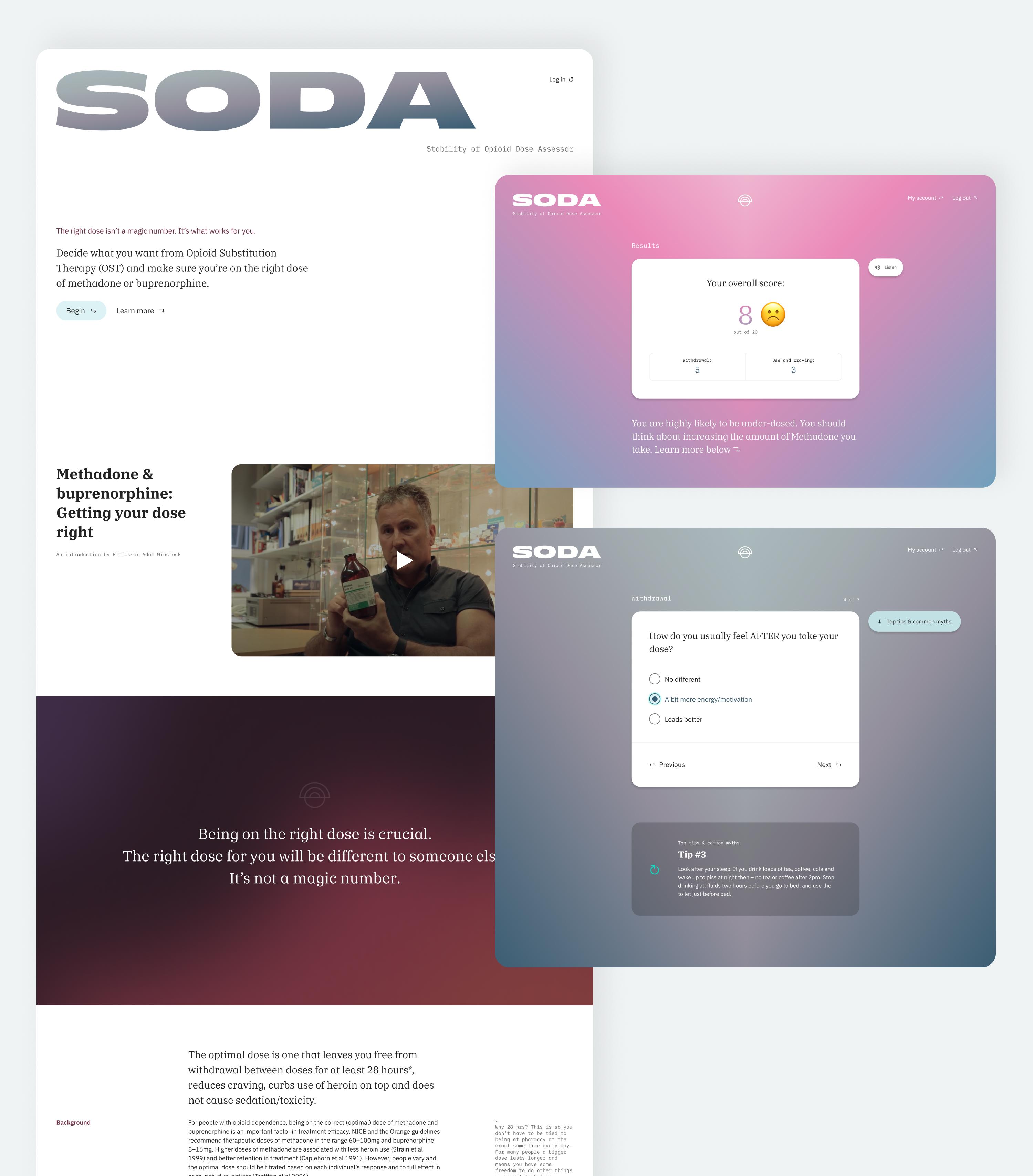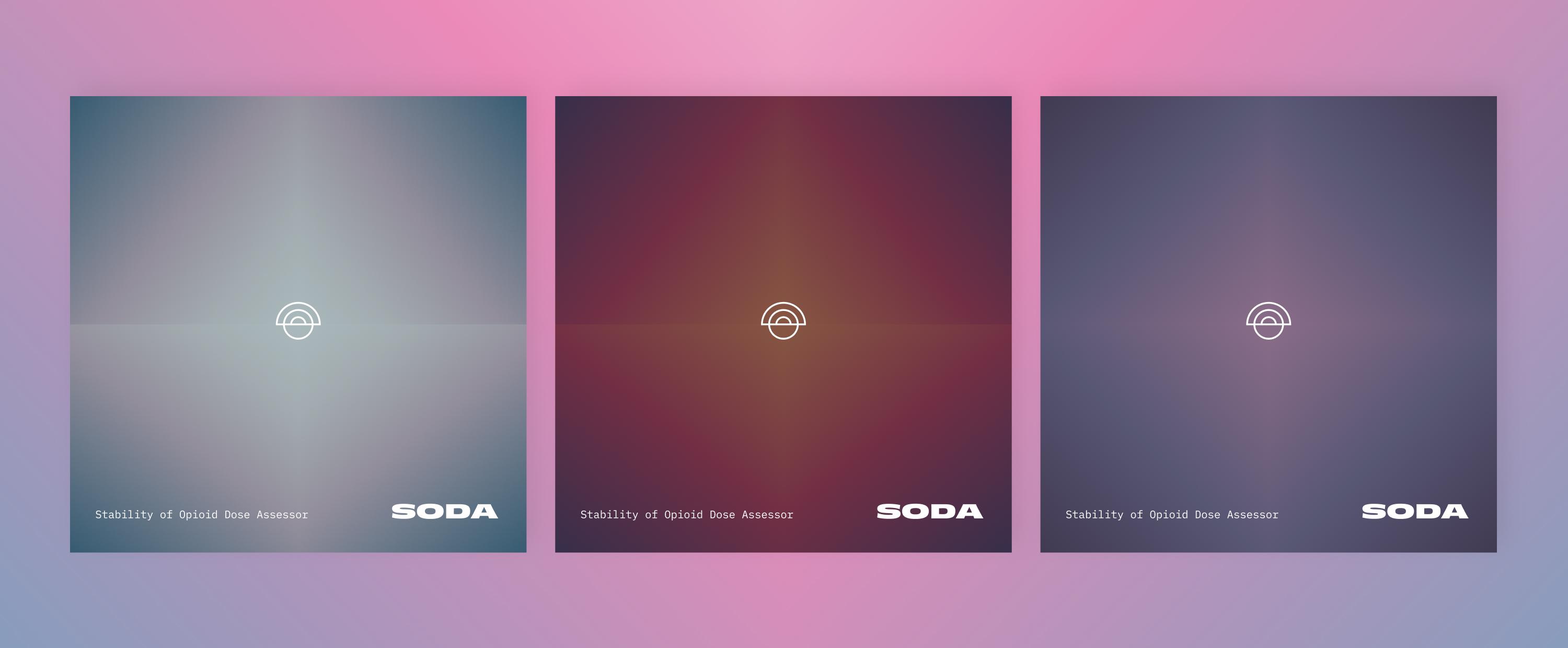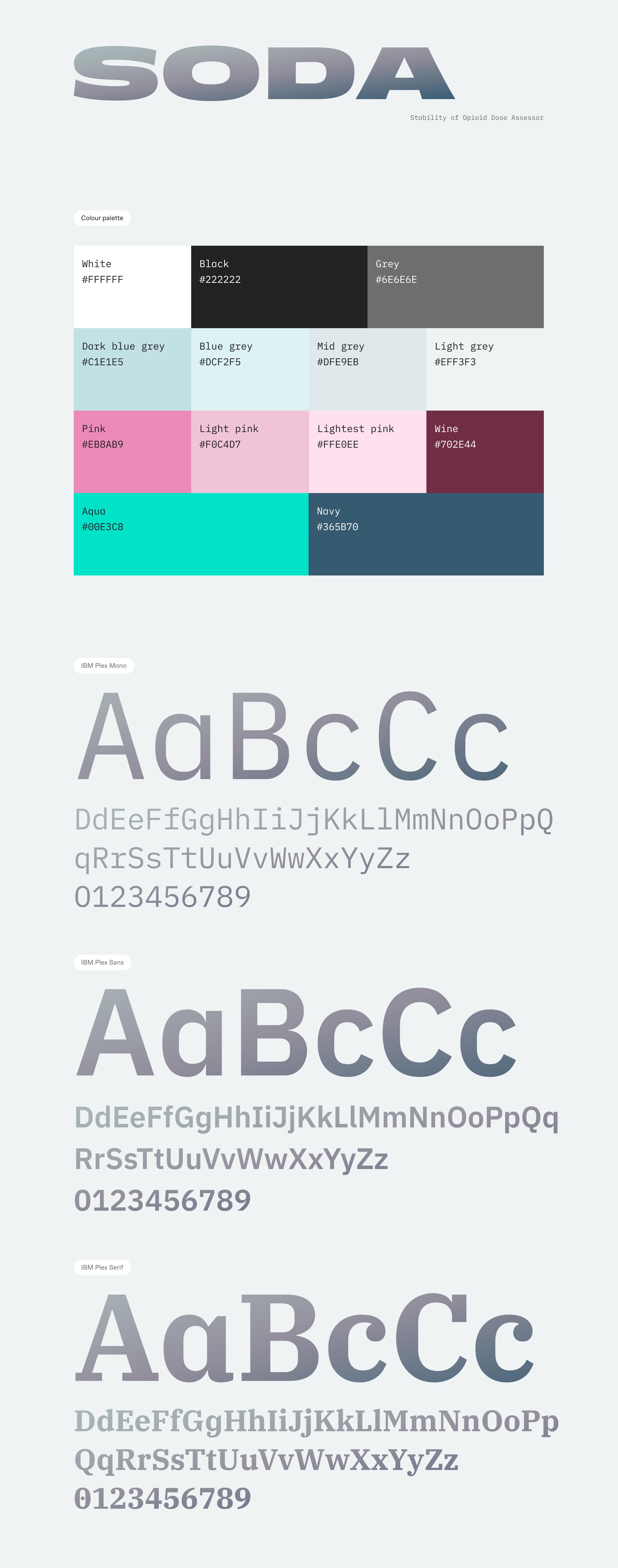
Building a unique digital health product to help people with addiction
Stability of Opioid Dose Assessor (SODA)
Sector
Discipline
Client
Drinks Meter
Year
2022
For people with opioid dependence, being on the correct (optimal) dose of methadone and buprenorphine is an important factor in treatment efficacy. Underdosing Opioid Agonist Therapy (OAT) leaves people at risk of use and overdose. But many people receiving OAT have poor understanding of how treatment works, including issues relating to dose and effect, and this limits the efficacy of treatment.
To help patients get the most out of their treatment they need a clear understanding of how treatment works, the benefit of higher dosing and, most importantly, what the right dose is for them – rather than being tied to a magic number or focusing on the fact that higher doses will result in a longer period of dose reduction to abstain. SODA helps patients identify for themselves, through a simple questionnaire, what the right (optimal) dose is for them.
Being on the right dose is crucial. The right dose for you will be different to someone else. It’s not a magic number. SODA provides that crucial support to inform individuals and help make positive change.
The optimal dose is the one that leaves people free from withdrawal between doses (preferably for at least 28 hours), so for people on supervised dosing, getting it doesn't become a preoccupation or cause of distress if other activities need to be attended to or they're unable to pick their dose up at their usual time. This can reduce craving, cessation or provide a significant reduction in regular on-top use and does not cause sedation.
SODA has been developed in conjunction with user organisations and treatment service providers as well as focus group tested with a number of patients with Professor Adam Winstock.

Digital product design
We wanted to build an accessible product design framework that wouldn’t intimidate or frustrate audiences. At the same time it needed to be clear and concise, to underpin the clinical topic that it was addressing. We implemented a soft colour palette of gradients alongside a clinical and accessible font choice that alludes to the pharmaceutical nature of the product. We used emojis in the results table to help remove any potential stigma from the tone of wording and hopefully provide comfort to people seeking out further assistance.
Database architecture
We had to build a robust database architecture to underpin the product. It would need to scale to handle an exponential amount of data with anonymous users potentially using a randomly generated login based on an ID generated within the app. We had to develop this to produce results quickly and be scalable. We adopted a React framework combined with a Google Firebase realtime database. This was prototyped and user tested through all phases of product development, right up to its release.


Creating a healthcare product?
We assist entrepreneurs and business taking new digital products to market. This can involve initial concept planning, commercial and investment conversations, and brand positioning alongside the scoping and design of the product itself. We achieve this through workshops, design sprints, conceptual storyboarding, user testing and prototype testing. Speak to our team about how we can support you.